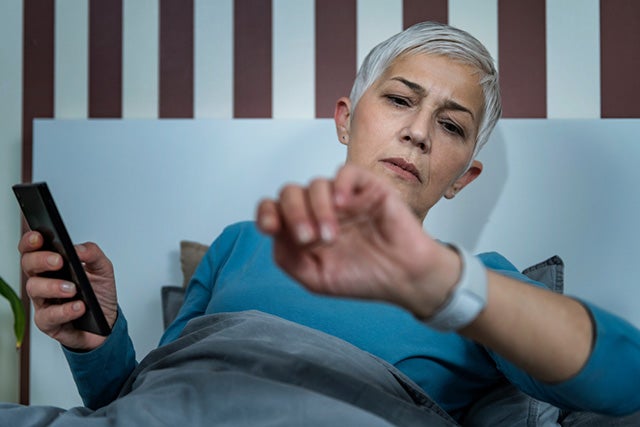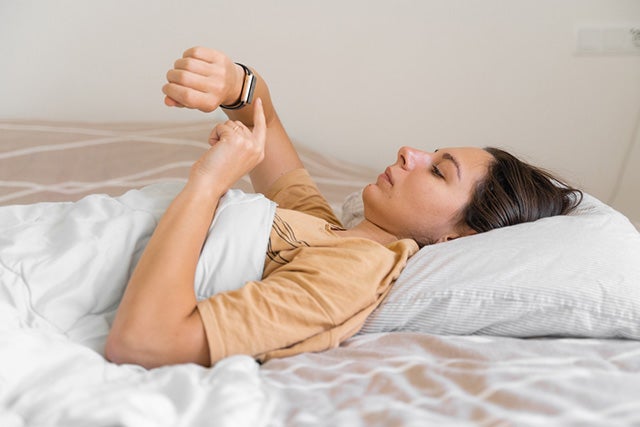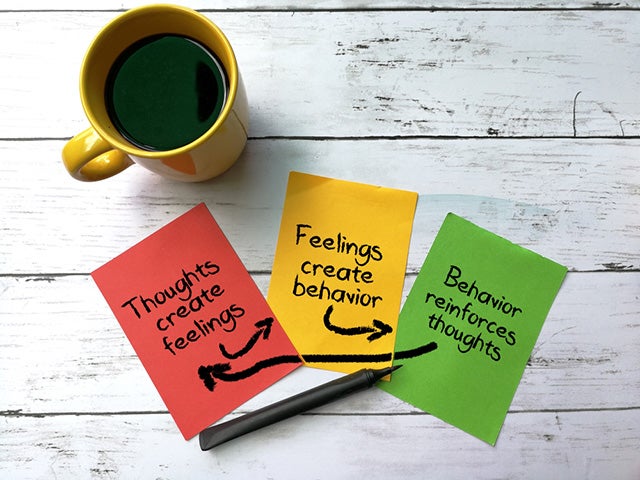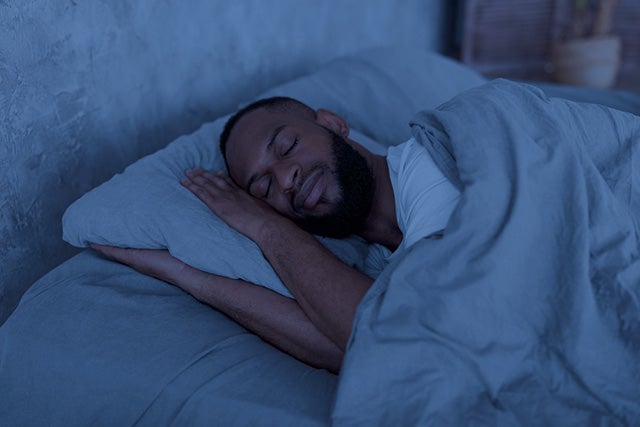Are you constantly checking your sleep tracker and thus decreasing your overall sleep? Orthosomnia is a sleep disorder characterized by an inability to fall or stay asleep. People who suffer from orthosomnia may wake up feeling unrested and fatigued, despite spending enough time in bed. Let’s discover more about this condition.
What Is Orthosomnia?
According to the National Sleep Foundation, “orthosomnia is a sleep disorder characterized by an obsession with achieving perfect sleep.” This may sound good, but it can sometimes lead to anxiety and sleep problems. People with orthosomnia often become fixated on their sleep tracker data, trying to get as close to 100% sleep efficiency as possible.
This can make them anxious about going to bed, disrupting their sleep. In severe cases, orthosomnia can even cause insomnia. Find yourself obsessing over your sleep data or struggling to get a good night’s sleep? It probably time to talk to a doctor about orthosomnia.
How Is Orthosomnia Treated?
Treatment for orthosomnia typically focuses on addressing the underlying cause. For example, suppose anxiety is thought to be the primary problem. In that case, a therapist may recommend cognitive behavioral therapy (CBT) to help patients learn how to manage their anxiety healthily.
A specialist may be consulted to identify potential problems and develop a treatment plan if a sleep disorder is suspected. Usually, medication may be prescribed to help promote better sleep.
The goal of treatment for orthosomnia is to help patients develop healthy sleep habits and reduce their anxious thoughts about sleep. Most people can overcome their obsessions with treatment and enjoy a good night’s rest.
What Are the Symptoms of Orthosomnia?
There is no agreed-upon list of symptoms that are associated with orthosomnia. There is no medical diagnosis for the condition known as orthosomnia.
Instead, it is a relatively new idea that a few sleep experts have only characterized, and there is only a small amount of evidence-based literature.
In the studies on this topic, participants who use sleep tracking devices had more accurate insight than those studied in a specialized sleep clinic. Their excessive time spent in bed to try and improve their sleep stats might have added to their insomnia symptoms.
Some of the symptoms noticed during the research included decreased sleep quality, fatigue, anxiety, irritability, and trouble focusing.
Can I Stop Orthosomnia?
Orthosomnia is a relatively new term used to describe a condition in which people become fixated on achieving perfect sleep. While orthosomnia can be caused by underlying mental health conditions, such as anxiety and OCD, it can also result from sleep-tracking devices or apps.
People with orthosomnia often spend excessive time worrying about their sleep and may become anxious or stressed if they don’t meet their sleep goals. As a result, orthosomnia can hurt both mental and physical health.
It is important to remember that the data provided by sleep trackers is not foolproof and might not show the full picture of how one spends their nights to prevent developing orthosomnia.
A sleep specialist or a doctor can provide vital context for comprehending the data collected by sleep trackers, particularly for individuals who have trouble sleeping or experience daytime drowsiness.
CBT
Cognitive-behavioral therapy can be really good for managing orthosomnia. During these sessions, you have your sleep patterns, and beliefs are examined.
Sleep Hygiene
It’s estimated that one in four adults in America suffers from a sleep disorder. This can have a significant impact on overall health and well-being, as well as the quality of life. One type of sleep disorder that is becoming increasingly common is orthosomnia.
While maintaining good sleep hygiene is important, it’s possible to become obsessive about it, leading to insomnia. Some tips for managing orthosomnia include setting a regular sleep schedule, avoiding caffeine and other stimulants in the evening, and creating a calming bedtime routine.
These simple tips can help you manage orthosomnia and get the rest you need.
Stress & Anxiety
While it is well-known that lack of sleep can lead to stress and anxiety, it is less commonly known that stress and anxiety can also cause or exacerbate existing sleep disorders.
Sleep disorders are a broad category of conditions that can negatively impact an individual’s ability to get a good night’s sleep. Common examples include insomnia, sleep apnea, and restless leg syndrome.
For many people with orthosomnia, the worry and stress about getting a good night’s sleep worsen the problem. In fact, studies have shown that people with orthosomnia often have higher levels of anxiety and stress than those without the condition.
Individuals who suffer from stress or anxiety are more likely to experience difficulty falling asleep and staying asleep throughout the night. Usually, this may be due to racing thoughts or worry.
In other cases, it may be due to physical symptoms such as muscle tension or headaches. Regardless of the cause, the result is the same: an individual who is exhausted during the day and unable to function at their best.
Suppose you struggle to get a good night’s sleep. In that case, it’s important to chat to your doctor about the potential role of stress and anxiety in your sleep disorder.
Why Do I Obsess Over Sleep?
There are a few possible explanations. Sleep is one of the human body’s basic needs and is essential for our health and well-being. When we don’t get enough rest or sleep, our bodies start to suffer in various ways.
We may become more susceptible to illness, our moods may swing wildly, and we may have trouble concentrating on tasks. In other words, when we don’t get enough sleep, our lives can start to unravel pretty quickly.
Another possibility is that sleep obsession is simply a way of coping with stress. In our fast-paced, always-on world, it’s easy to feel overwhelmed and anxious. Sleep can be a welcome respite from the chaos of daily life, and it’s natural to crave it when stressed out.
Whatever the reason for this obsession, there’s one certain thing: sleep is important, and we all need to make sure we’re getting enough of it. So if you find yourself fixating on sleep, try to take some time each day to relax and unplug from the world.
Do Sleep Trackers Work?
Sleep trackers are gaining popularity, and it’s easy to see why. By tracking our sleep patterns, they can help us to identify habits that may be affecting our quality of sleep.
For example, if we tend to stay up late on weekends and then have trouble sleeping during the week, a sleep tracker can help us see the pattern and change.
Sleep trackers can also help spot other issues affecting our sleep, such as snoring or restless legs. By helping us to identify these issues, sleep trackers can play an important role in improving our overall sleep health.
Bottom Line
If you think you may be afflicted with orthosomnia, it is important to seek treatment from a doctor. There are a variety of therapies available to help you get the rest you need.
Photo credit: Monkey Business Images/Shutterstock;
Troyan/Shutterstock; megaflopp/Shutterstock;
mypokcik/Shutterstock; Irina Burakova/Shutterstock;
Prostock-studio/Shutterstock; Microgen/Shutterstock





